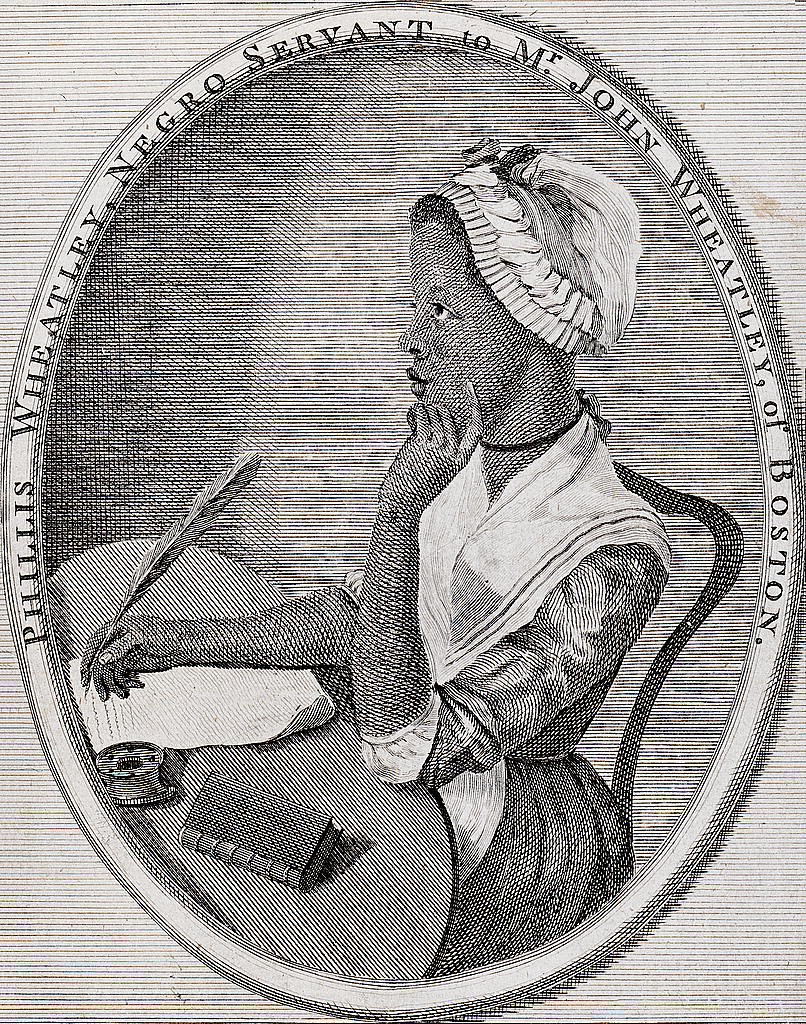Possibly the most remarkable example of the traditional or dominant culture winning in early American Lit is the story of Phillis Wheatley, a slave living in the mid-1800s. While the white family she - quite literally - belonged to is alive, Wheatley enjoys a privileged position in society, even traveling to Europe and socializing with aristocracy and dignitaries. When that family passes, however, Wheatley loses her status and eventually dies in abject poverty. Despite being renowned in the Western world as a great poet, the American public refused to support Wheatley.
It is arguable that the dominant culture, white American culture, won out long before Wheatley's fall to poverty and eventual death. Wheatley's acclimation to white America was astounding, she even went so far as to write the following in one of her poems:
"'Twas mercy brought me from my Pagan land,
Taught my benighted soul to understand
That there's a God".
She believes that her arrival in Western culture which brought her to Christianity is a blessing despite the fact she was kidnapped and sold into slavery. For a modern reader, this is, I think, rather distasteful; although she does lighten the horror by using this opening as a way to introduce the idea that while "some view our sable race with scornful eye" Americans need to know that "Negros, black as Cain, / May be refin'd, and join th' angelic train". Still, by saying that African-Americans need to be "refin'd" she is letting white American culture win.
Strangely Wheatley's life story and James's fictional one seem to contradict each other regarding the progressiveness of American and European society. In Daisy Miller, it is the Americans who are progressive; whereas the opposite is true in Wheatley's case. Europe would not countenance a female who disregarded the boundaries of her gender; America would not support an African-American who disregarded the boundaries of her race. This makes me want to read more works about the collision of European and American society in regards to gender and racial equality. Was Europe open to racial equality but bound and determined to deny women? Was America okay with progressive women but adamant against equality across race? If you have any suggestions on relevant books, I would love to hear them!
James and Wheatley both feature two cultures colliding, and it is clear that all parties are effected by the clash, but in all both cases, the dominant culture wins. Overall, do you think these authors are challenging the status quo or supporting it?

No comments:
Post a Comment
Talk to me baby!